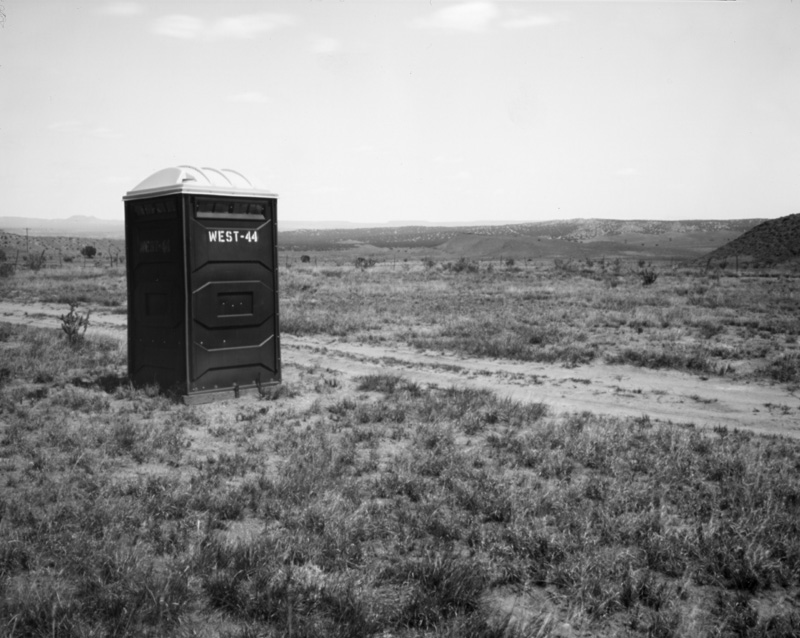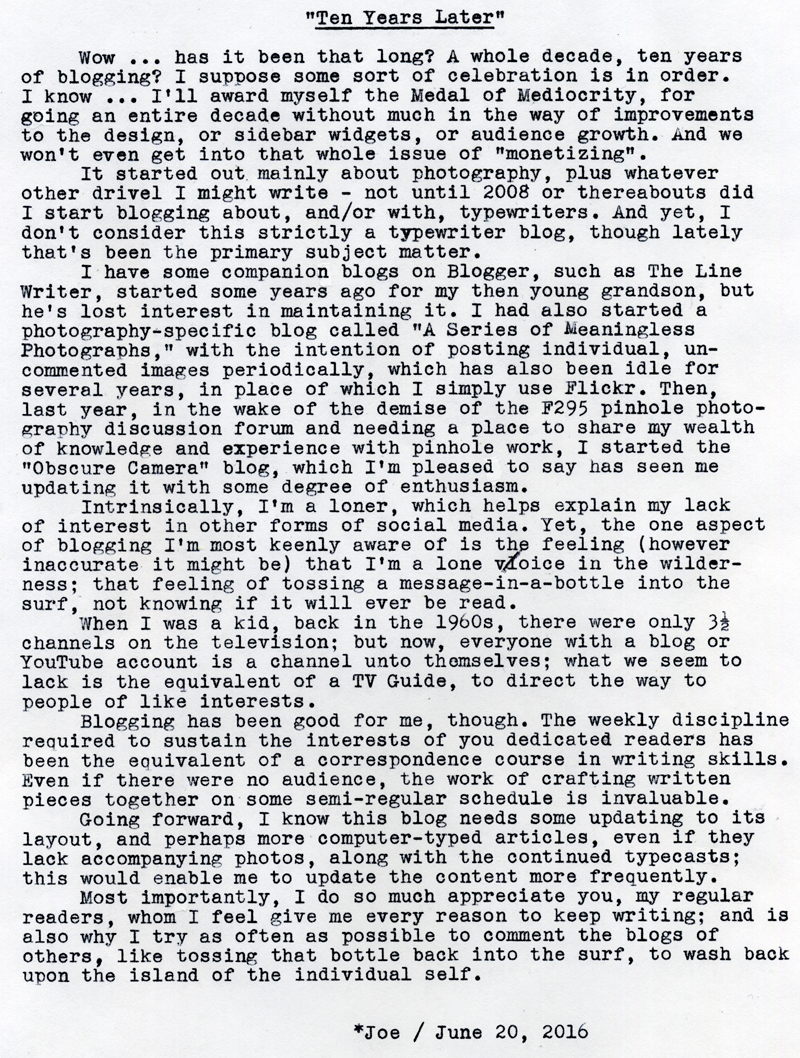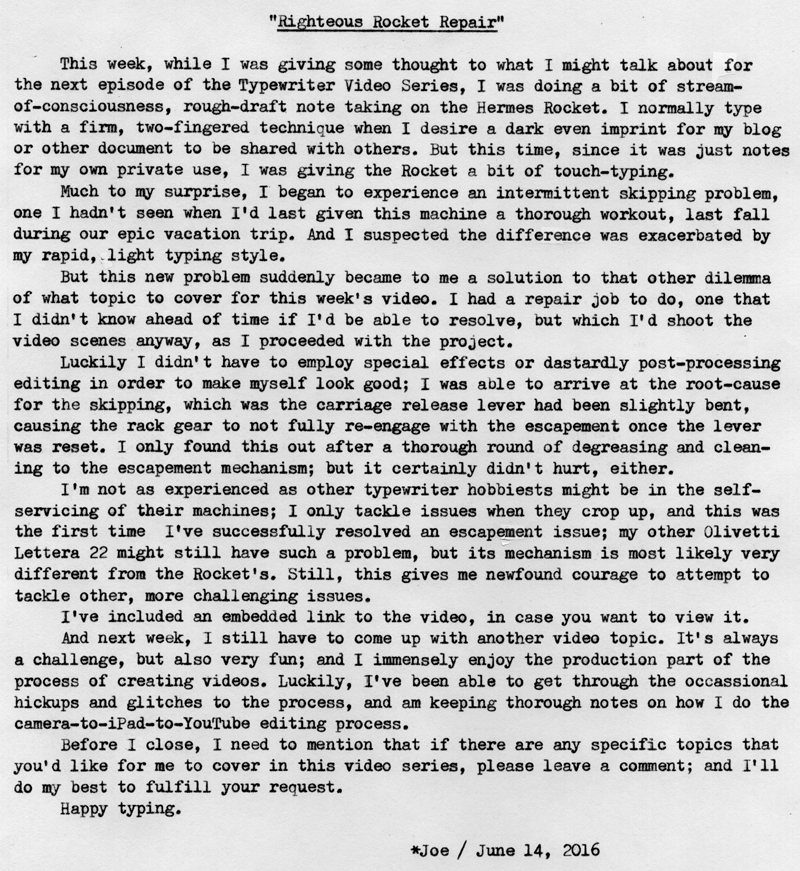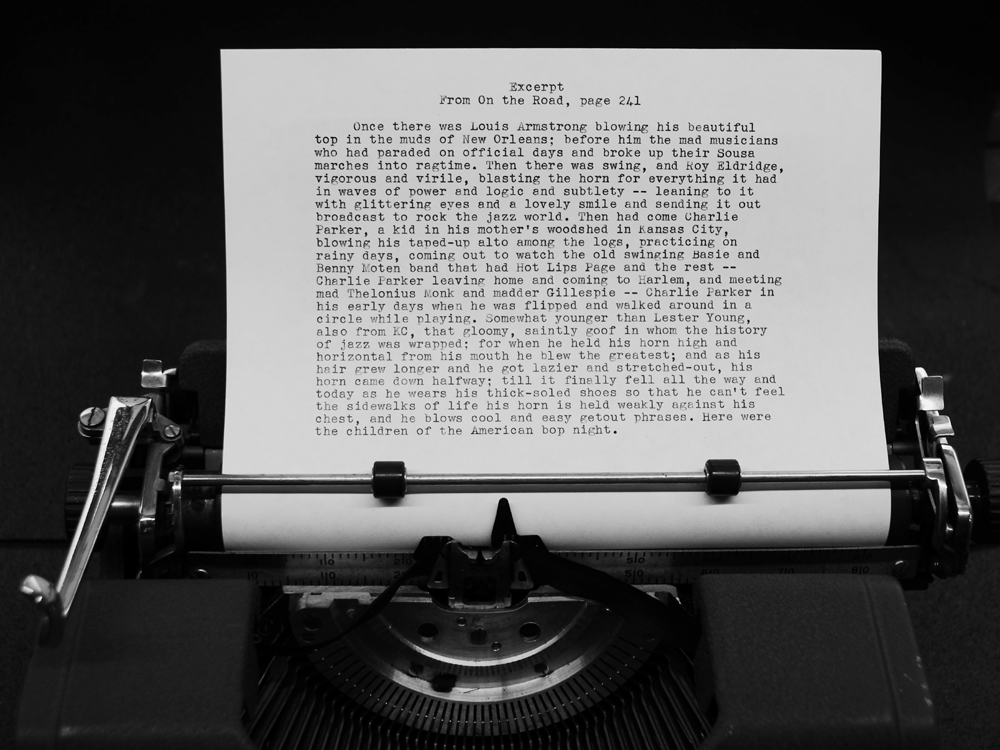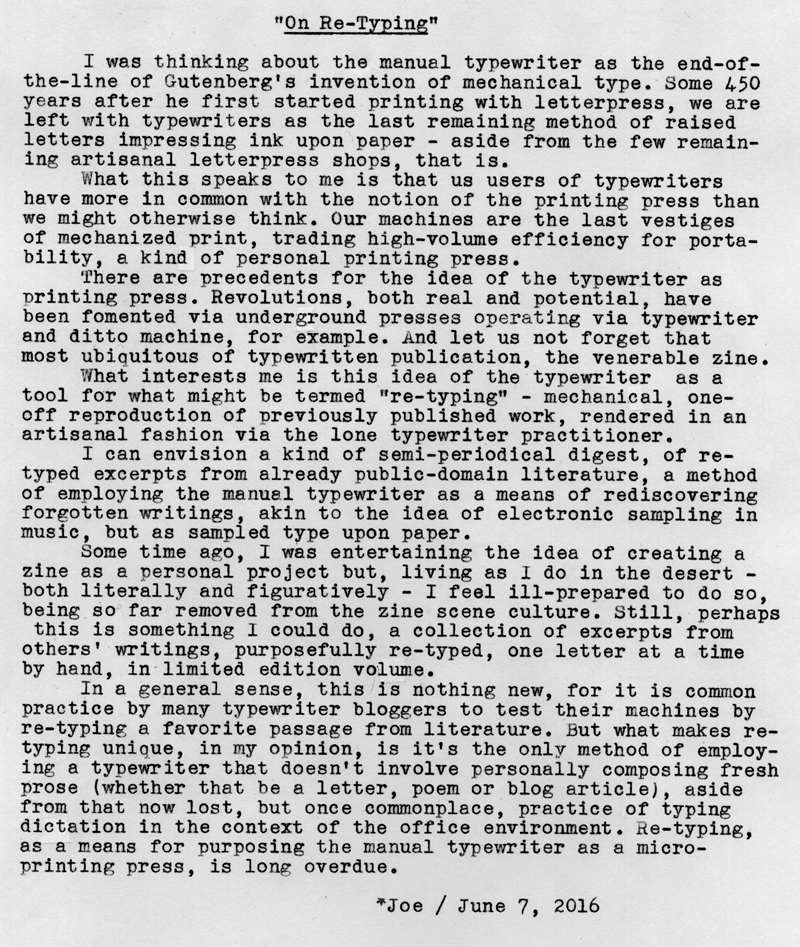Scribes of Our Present Age
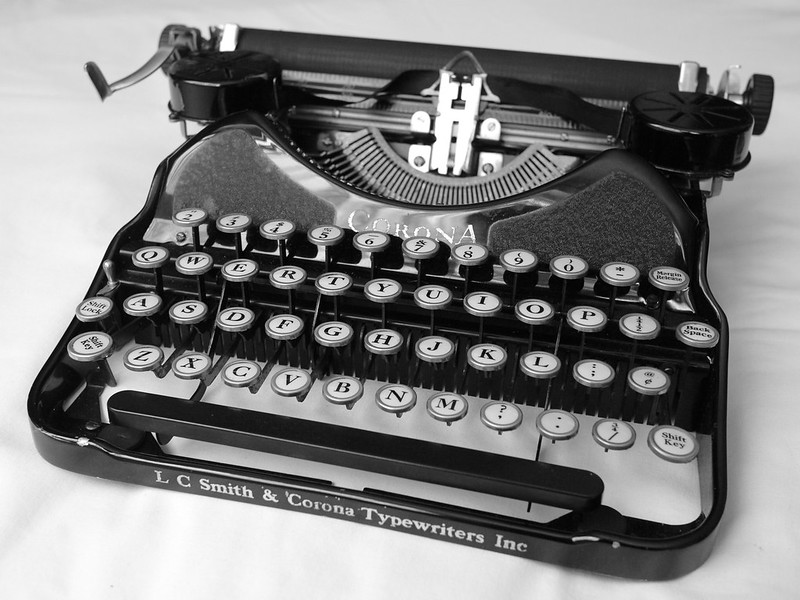
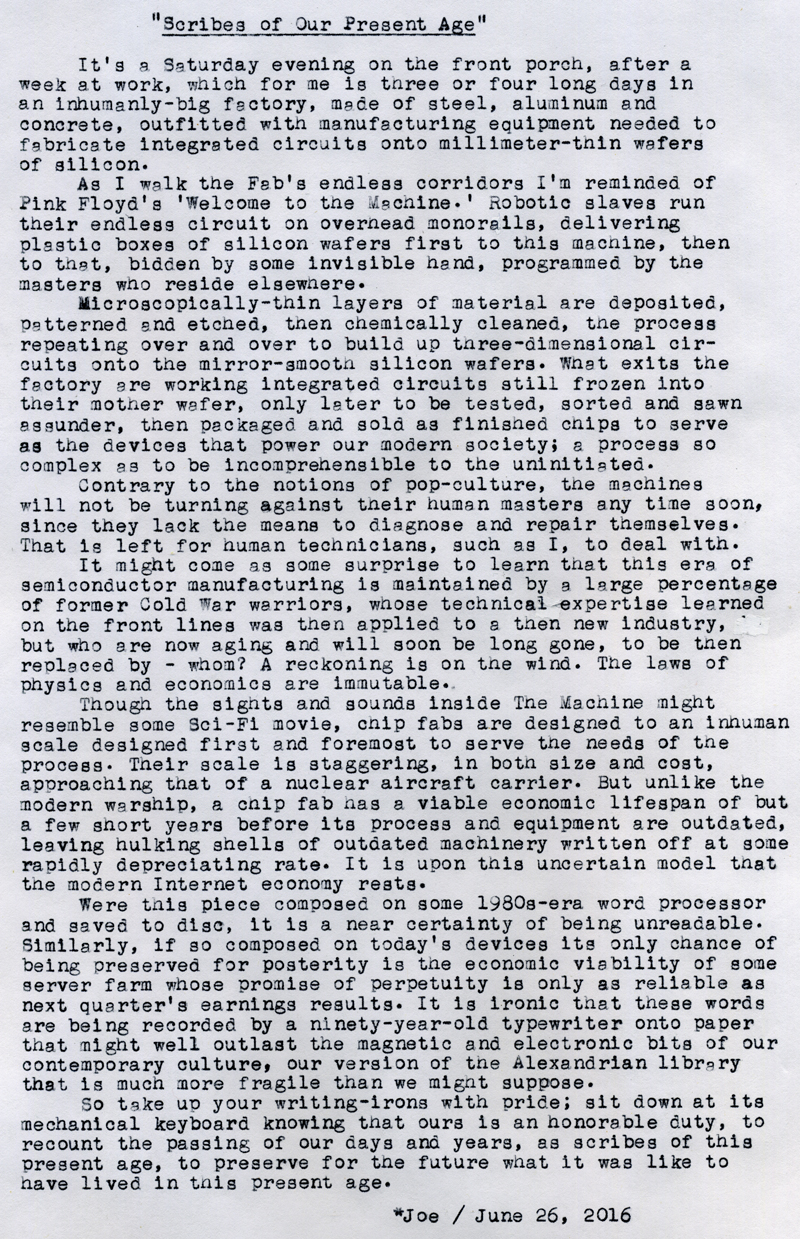
Post-Script: Perhaps us typewriter aficionados do have a duty to future generations, to preserve some small glimpse of this present age, through this seemingly outdated medium of mechanically imprinted ink upon paper, like those few diehard film photographers who choose to preserve images onto a more physically permanent medium than magnetic fields or bits of electric charges might provide. Perhaps that is the greater significance of the typewriter renaissance, offering one last opportunity, before these machines corrode irreparably through the effects of time, to preserve the knowledge of the past and present.
Maybe this is all much too romantic of an approach, the idea that typewriters serve some culturally historic function. But consider that the typed document is able to be scanned and then converted to some electronic format, much more easily than a handwritten manuscript might (certainly my handwriting is scanner-proof); functioning as a film negative, as a document existing into the future within the physical realm.
We could argue endlessly as to whether paper is more archival than electronic media. I can imagine scenarios where either media would fail first. For my purposes, however, paper documents require no expenditure of energy to sustain, only space to store; unlike information in server farms or hard drives, which have to be repeatedly copied onto new media periodically to remain viable. The laws of thermodynamics and quantum physics dictate that magnetic fields inevitably degrade over time, as do electrical charges, that will inevitably leak out of the best flash memory's floating gate.
I wonder if future historians will even have access to the archives of our present social media platforms, or if these will function as virtual voices in the wind, fleeting and ephemeral, only accessible in the present. Might it be possible that there will remain an enormous gap in our culture's legacy, brought about by the temporal nature of the systems and platforms that support our contemporary culture?
I am reminded that the typewriter's origins lie in an attempt at circumventing the effects of a labor strike at Christopher Latham Sholes's newspaper's printing office. Such is the problem of centralized control of the means to access information technology; which reminds me of our present-day era of silicon-based platforms dependent on specialist, centralized complexity, and of the typewriter's intrinsic self-sufficiency. Unlike the ancient Alexandrian library (another centralized repository of cultural data), whose contents were lost to history, the typewriter is entirely decentralized into the hands of individual collectors and users. Contrast this with these mega-sized semiconductor factories, described above (and in which I work), which are becoming more and more expensive to build and maintain, in the hands of fewer and fewer corporations willing to invest the necessary capital.
Typecast via ~90 year old Corona 4.
Labels: chip fabs, Corona 4, cultural history, social media, typewriter renaissance
